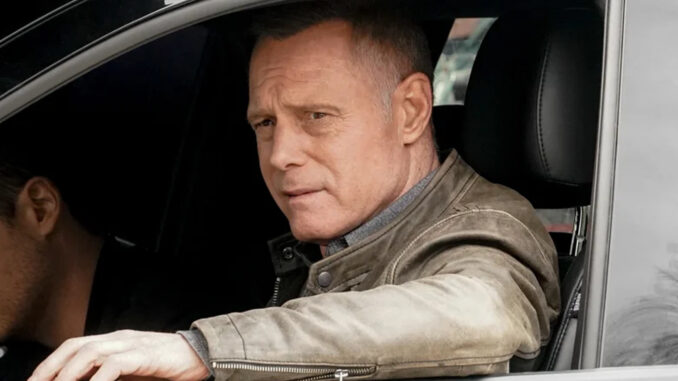
From Savior to Shadow: The Erosion of Voight's Heroism in Chicago P.D.
Sergeant Hank Voight, the enigmatic and often morally ambiguous head of the Intelligence Unit in Chicago P.D., has long been a paradoxical figure. For years, the audience, despite witnessing his transgressions, held a certain affection, even admiration, for the man who seemed willing to cross any line to protect his city and his team. We rationalized his methods, saw the good intentions beneath the brutal exterior, and cheered him on as a flawed, yet effective, guardian. However, as the series has progressed, a palpable shift has occurred. The Voight we once rooted for is increasingly becoming a figure of discomfort, a stark reminder of the corruption he fights against, and a character whose actions are pushing the audience, and even his own team, away.
Initially, Voight's appeal stemmed from his perceived unwavering loyalty and his ability to navigate the treacherous landscape of Chicago's underbelly. He was the antithesis to the bureaucratic red tape, a force of nature that delivered justice when the system failed. He bent the rules, yes, but he did it for the greater good, or so we told ourselves. Think of the countless times he silenced witnesses to protect his team, or framed criminals he knew were guilty but couldn't convict legally. We excused these transgressions because we saw the relief in the eyes of victims, the restored order in the community, and the genuine care he had for his officers. He was a father figure, albeit a twisted one, who protected his “family” at all costs.
This paternalistic protection extended to his team, particularly his protégé, Jay Halstead. Voight meticulously groomed Halstead, imparting his knowledge of the streets and shaping him into a ruthless yet effective detective. He shielded him from the worst of his own actions, allowing Halstead to maintain a semblance of moral integrity. This dynamic provided a crucial counterpoint to Voight's darkness, allowing the audience to believe that his methods, while extreme, were ultimately guided by a desire to protect the innocent.
However, the lines have become increasingly blurred. The "greater good" justification is wearing thin as Voight's actions have taken a darker turn. His methods, once seen as necessary evils, are now perceived as reckless endangerment, leading to devastating consequences for both his team and the city he swore to protect. The death of Olinsky, a direct result of Voight's actions, was a watershed moment. It forced the audience to confront the true cost of his ruthlessness and shattered the illusion of a benevolent vigilante.
Furthermore, the constant cycle of cover-ups and moral compromises has taken its toll on Voight himself. The lines between cop and criminal have become indistinguishable, and he is increasingly isolated, even from his closest allies. His interactions with his team are marked by suspicion and resentment, a far cry from the familial bond they once shared. The very trust that once defined their relationship is eroding, leaving behind a void filled with fear and uncertainty.
This erosion of trust isn't limited to his team. The audience, too, is struggling to reconcile the man we once admired with the figure we see now. The justifications we once readily accepted now ring hollow, replaced by a growing sense of unease and disappointment. We are witnessing the slow, agonizing transformation of a hero into a tragic figure, consumed by the darkness he once fought against.
In conclusion, the character of Hank Voight in Chicago P.D. provides a compelling case study in the complex relationship between audience and character morality. While his initial appeal rested on his perceived effectiveness and loyalty, the increasing brutality and moral compromises have alienated many viewers. As the series progresses, Voight's journey serves as a cautionary tale about the dangers of unchecked power, the corrupting influence of violence, and the importance of maintaining one's moral compass, even in the face of immense pressure. The question now is not whether Voight can redeem himself, but whether the audience is willing to forgive him. The answer, increasingly, seems to be no.
